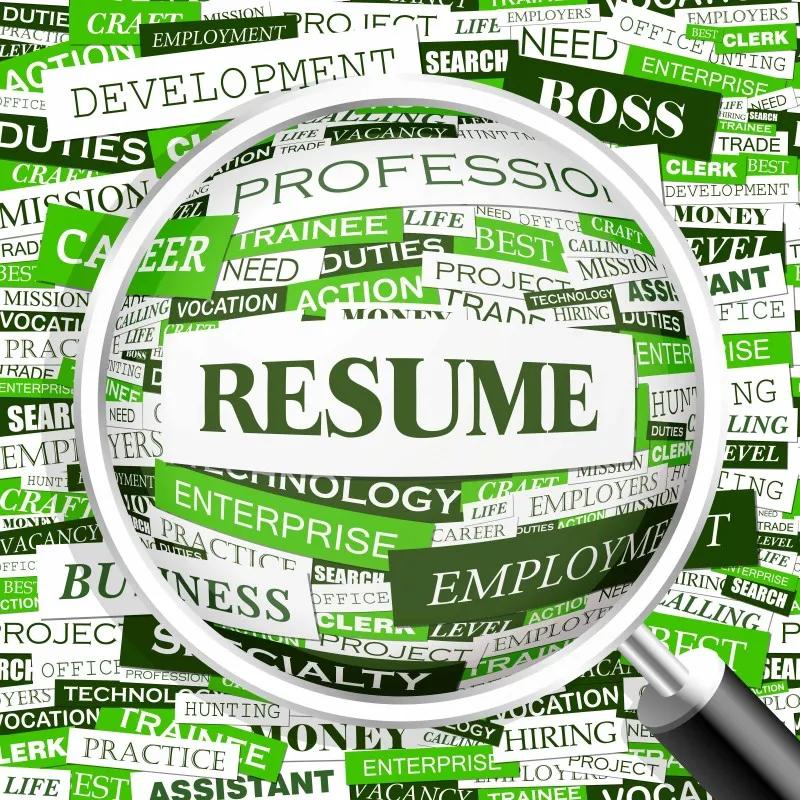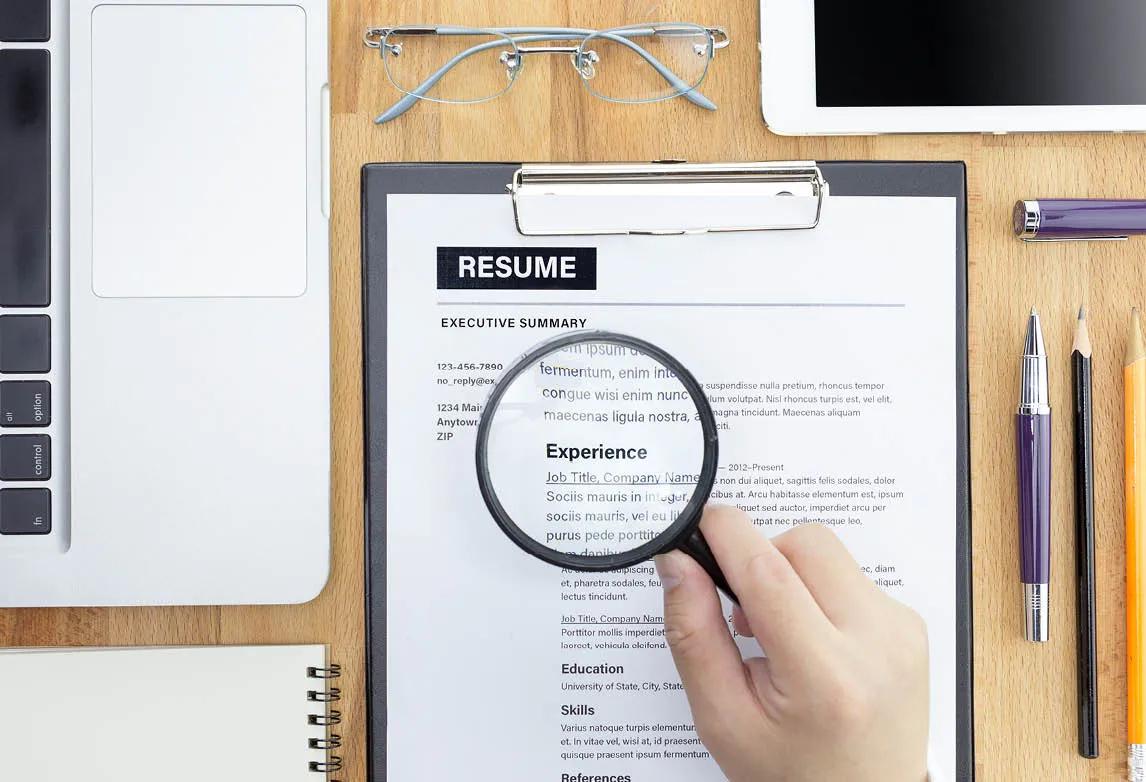Job Interview Dos and Don’ts That Can Help You Shine

Job interviews can be stressful. Preparing in advance can help you feel more confident upon meeting a prospective employer. This involves learning a few of the things you should and shouldn’t do when it comes to healthcare job interviews.
Healthcare Job Interview Dos
Fortunately, there are several things you can do to help you shine during a job interview with a healthcare employer. Here are some interview-based dos to consider.
Read the Job Post Thoroughly
A job post contains a lot of helpful information for applicants. But it’s also easy to overlook the details when you are excited and want to get your application in before others have the chance. Do take the time to read the job post thoroughly for that healthcare position. This helps you understand the job duties in greater detail, as well as ensure that you meet the minimum requirements.
Research the Company in Advance
Not every employer and employee are a good fit. To help you recognize whether a specific healthcare job might be the right opportunity for you, research the employer in advance. Look at its website and social media pages. This will give you an idea of what is important to the organization and what the work environment might be like. Researching in advance also helps keep you from asking questions during the interview that you would already know the answer to if you had done your due diligence.
Consider How You Can Contribute to the Healthcare Organization
While it’s important to seek a job that aligns with your desired career path, one of the goals of the job interview is for the employer to find an employee who can help it achieve its mission and vision. So, think about how you can contribute to the healthcare organization. What skills or experience do you have that can help it grow? In other words, why should the company choose you over all of the other applicants?
Review Questions You Might Be Asked
Regardless of the type of position you’re pursuing, several healthcare job interview questions are commonly asked. This includes inquiring about your strengths and weaknesses, why you want to work for that employer, your healthcare career goals, and perhaps why you are leaving your current employer, if applicable. Familiarize yourself with these questions to get a better idea of what you might be asked, then formulate your response in advance. This can help keep you from fumbling for an answer during the interview itself. It might also reduce some anxiety by feeling more prepared.
Think of Experiences You’ve Had That Highlight Your Skills
It’s not uncommon for healthcare interviewers to want real-world examples of how you’ve handled difficult situations or solved complex problems that you might face in the open role. Think about your past experiences that have involved these types of circumstances. That way, they are at the forefront of your mind if you’re asked for examples.
Practice with a Mock Job Interview
The more you practice doing something, the more comfortable you feel. The same is true with job interviews for healthcare roles. Ask a family member or friend to go through a mock interview with you. Go through each step as if it were the real thing. If you can’t find someone to practice with, look for other options. For instance, students at Ultimate Medical Academy (UMA) have access to our Career Services team which can do a practice healthcare job interview with you.
Dress Appropriately
It’s often said that you shouldn’t judge a book by its cover, but your appearance can influence how the interviewer feels about you as a candidate. Making sure your interview clothes are clean and wrinkle-free is a good first step. As far as clothing type, choosing options that are on the conservative side can be safer than picking items that are too flashy.
Map Your Route
The last thing you want to do is show up late for your healthcare interview. One way to keep this from happening is to check your route in advance via a map-based app. This tells you how long it will take to get to the interview on the big day. A few days before, plug in the interview address at the time of day you would expect to leave. This helps you account for traffic during that time.
Give Yourself Extra Time to Get to the Interview
If your map app says it will take 30 minutes to get the job interview, give yourself 45 minutes instead. This gives you time to navigate unexpected detours – such as an accident that has closed the roadway – and still get to the interview on time. It may even be helpful to find a coffee shop or restaurant close to the interview site and plan to go there beforehand. This ensures that you’re in the area on time and won’t be sidelined by unforeseen issues.
Take Extra Copies of Your Healthcare Resume
Your interviewer will likely have your resume before them. However, there are times when this doesn’t happen, such as if your resume was misplaced or if you’re being interviewed by a panel of people and they didn’t make enough copies for everyone. Having extra copies with you shows that you want the interviewer or interviewers to know your qualifications. It also shows that you’re prepared.
Keep Your Cell Phone Quiet (and Out of Your Hands)
There are just some places where you don’t want your cell phone to go off and a job interview is one. Before walking into the healthcare organization, put your phone on silent. During the interview itself, keep it in your bag or pocket, or set it next to you. Holding your phone in your hands the whole time can make you want to fidget with it, which can distract the interviewer. It might also make them wonder if your phone will get in the way of doing the job, which could be a huge turn-off.
Ask the Interviewer Questions
Generally, in a healthcare job interview, you are the one being asked the questions. But you should also have a few questions to ask the interviewer. This shows your interest both in the job and in the company. Some questions to ask include what they’re looking for in a candidate, how they measure success, and the challenges someone in that position might face.
But…Save Your Questions Until the End of the Interview
Asking your questions at the beginning of the job interview can make it seem like you’re trying to take control away from the interviewer. Plus, some of your questions might naturally be answered during the meeting. Saving your questions to the end shows the interviewer that you respect their process, and that you can listen to the information presented. Taking this route also enables you to ask one final wrap-up question: Is there anything I have not asked you that you think I need to know?
Express Gratitude for the Interview
At the end of the healthcare interview, thank the interviewer for giving you the opportunity to be considered. A little gratitude can go a long way, especially if others being interviewed come off as entitled or don’t appear to appreciate what the job could offer them. In cases such as this, you can stand out simply because you’ve thanked the interviewer for their time.
Healthcare Job Interview Don’ts
Just as it’s important to know what to do when it comes to job interviews for open healthcare roles, it’s as critical that you know what not to do. With that in mind, here are 12 job interview don’ts.
Don’t Try to Just “Wing It”
If you’re someone who likes to go wherever life takes you, you might be tempted to not prepare for the job interview and just “wing it” to see how it goes. The problem with this approach is that the interviewer may take your lack of preparation as a sign that you aren’t serious about the job or don’t care. This can make them less likely to take a chance on you out of concern that you won’t take the necessary steps to prepare for the job either.
Don’t Answer Without Thinking About Your Response
When you’re nervous, it’s easy to want to answer the interviewer’s questions immediately, right after they are asked. Yet, this can cause you to blurt out a poorly thought-out response, which isn’t going to help you shine. Instead, take a couple of seconds to formulate your response. This is referred to as “practicing the pause.” It might feel unnatural at first, but as you do it more, you’ll start to feel more comfortable with the silence.
Don’t Oversell Yourself
You want the job. So, when the interviewer asks you questions, you want to impress them with your answers. This is fine as long as you don’t oversell yourself. You can come off in a more positive light if your answers are genuine and authentic rather than painting yourself as a superhero. Being confident in what you offer their healthcare organization without making it sound as if you think you are better than everyone around you also helps them see you as a team player.
Don’t Be Too Long-Winded During Your Healthcare Interview
At an interview, you have a limited time to share everything that makes you the right person for the job. This can lead you to want to expand on every question, giving the interviewer every detail possible in your response. But they don’t want every detail, especially if they have limited time. Keep your answers short and to the point. If they want you to expand on something, they’ll ask you to do just that.
Don’t Be Dishonest About Your Education or Experience
It goes without being said, but there is no upside to being dishonest with a potential employer. Most will check your details anyway and, if they find a discrepancy, remove you from the pool of applicants. Even if they don’t, dishonesty that is discovered down the road is often grounds for immediate termination. This can cause quite a hit to your reputation, potentially even following you to interviews down the road if word gets around.
Don’t Interrupt the Interviewer
When the interviewer is talking, you should be listening. Sometimes this is easier said than done, especially if you’re formulating your next statement in your head and blurt out a response without even recognizing that they weren’t done speaking. Practice this skill in advance with family and friends. When they are speaking, don’t interrupt them. This helps train you to do the same during a healthcare job interview.
Don’t Speak Negatively About Former Employers (or Colleagues)
It can be a huge red flag for potential employers if a job applicant starts bad-mouthing a previous employer or colleague. One reason for this is that if you’re willing to talk negatively about a past employer, they worry that you’ll do the same to them and their staff. Bad-mouthing someone else is also a sign that you blame them for your experience versus taking any blame yourself. Admittedly, they might have been rotten and the reason you left. But sharing your experience without negativity can show that you are able to be respectful at all times, and that you accept responsibility for any part that you might have had in the situation.
Don’t Avoid Eye Contact
Some people find making eye contact uncomfortable, especially when they are nervous. That said, avoiding eye contact in a healthcare interview can make the interviewer think that you aren’t answering honestly or that you aren’t confident in your abilities. If you struggle with keeping good eye contact, practice this skill well before the interview. Look the grocery store clerk in the eye when checking out. Look the server in the eye when placing your food order. Learn to maintain eye contact with family and friends so you naturally do the same during the interview process.
Don’t Forget to Smile
Research has found that smiling can help your body better deal with stress.2 So, smiling during the interview can make you feel more calm. Having a smile on your face can also show that you are a happy, positive, or upbeat person. These qualities can be appealing in a healthcare employee, potentially putting you ahead of applicants who don’t smile at all.
Don’t Overdo the Perfume or Cologne
Remember that this is a job interview and not a blind date. If your perfume or cologne is too much, it can overpower the interviewer and cause them to not want to be in the same room. Additionally, some people are allergic to these scents, making it difficult if not impossible for them to get through the interview without breaking into hives. Not wearing perfume or cologne at all can keep these situations from happening. And if you do put some on, use it sparingly.
Don’t Chew Gum or Suck on Candies
Are you someone who always has a stick of gum in your mouth? Or maybe you like to suck on candies when you feel nervous? Both of these can distract the interviewer, especially if it causes you to make smacking or sucking noises. Spit out your gum before walking into the building or, if you have candy in your mouth, either chew it up and swallow it or spit it out too. If your breath is a concern, brush your teeth right before the interview to freshen it up.
Don’t Fidget During the Interview
Fidgeting is common when you’re nervous, but it can also be portrayed as a sign that you’re not confident in your abilities. During the interview, take precautions to keep from fidgeting, such as clasping your hands on your lap in front of you or placing a hand on each knee. You want the focus to be on what you have to offer the healthcare facility or organization, not on your hands that are constantly moving.
Want Help Preparing for Your Upcoming Job Interview?
If you’re nervous about an upcoming job interview – or job interviews in general – UMA is here to help. Our caring and compassionate Career Services professionals can run you through a mock interview, help you update your resume, and assist with your job search.
In the meantime, learn how to overcome interview anxiety, prepare for key interview questions, and find ways to impress the interviewer. All of this can help you shine during your interview, helping you represent yourself in a way that underscores the person (and employee) that you are and the value that you offer.
2 Cross M et al. How and Why Could Smiling Influence Physical Health? Health Psychology Review. https://www.tandfonline.com/doi/abs/10.1080/17437199.2022.2052740
Request Information
Talk with us. Start your journey.
Complete this form and we'll call you to explore options at UMA and answer your questions. We'll also email you info on how to get started. We're with you at every step!
Request Information
Talk with us. Start your journey.
Complete this form and we'll call you to explore options at UMA and answer your questions. We'll also email you info on how to get started. We're with you at every step!
About the Author
 Adam Fenster
Adam FensterAdam Fenster is a senior copywriter at Ultimate Medical Academy, with journalism experience from his time as a reporter and editor for multiple online and print publications. Adam has been covering healthcare education since 2019, with an emphasis on topics such as wellness, healthcare employment, and job preparedness. He received his BA in journalism from the University of South Florida.
Related Content


3 Questions to Measure Long-Term Potential in Healthcare Job Candidates
Read More